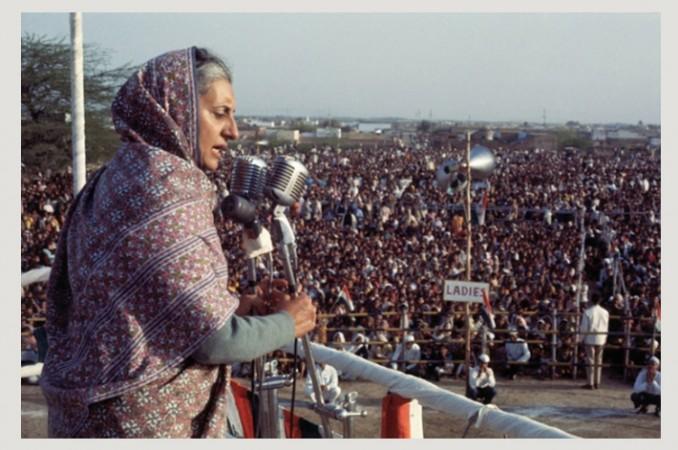
The Congress is quite silent after Prime Minister Narendra Modi, during his radio programme "Mann Ki Baat" on Sunday, called the Emergency former prime minister Indira Gandhi had imposed on the country on the intervening night of June 25-26 in 1975 a "dark night" for democracy.
During the address, Modi said: "The night of June 25 [in 1975] and the morning of June 26 was a dark night for us as Emergency was brought into effect then. Citizens' rights were taken away. The country was turned into a prison. Lakhs of people, including Jaiprakash Narayan, thousands of leaders and [people from] many organisations were put behind bars."
He pointed out that hundreds of books have been written on that "black incident," and it has been debated upon a lot. "However, when I am talking to you on this June 26, let us not forget that democracy, people power and each individual citizen are our strength."
The Congress, which is usually quick to hit back at any barb Modi aims at it and its leaders, has been quiet on this so far. While it may seem surprising to some, the reason behind the silence is not all that difficult to fathom. Put simply, this is a catch-22 situation of sorts for the Congress.
The Emergency is not something that the Congress wants to defend, or actually even can, given what happened during that time. Independent political observers have often called the power Indira Gandhi wielded at the time "dictatorial." And any person -- politician or otherwise -- opposing her moves were put behind bars.
Thus, this is an issue the BJP can rake up against the Congress without much repercussions. If the Congress chooses to speak on it or Indira Gandhi, it may come across as defending the Emergency. And if it remains silent -- as it is doing right now -- it is bound to bolster the belief that even the party thinks what happened at that time under its rule was wrong.
And this is especially important because of the upcoming assembly elections in Punjab and Uttar Pradesh. The Congress is already on the back foot in Punjab, where it has been forced to shunt out Kamal Nath after putting him in charge of state affairs, simply because his name had cropped up in the 1984 anti-Sikh riots case.
The raking up of the Emergency issue can push the party further on the back foot, and not just in the poll-bound states.

















